Exclusive: I had to bury my childhood friends killed by Takfiri militants in Parachinar
By Asad Abbas Toori
It was a typically quiet evening in my hometown, Parachinar, situated west of the city of Peshawar in northwest Pakistan. I was busy working on my freelance projects when the calm was shattered by the sudden, ear-splitting sound of mortar shells.
I quickly rushed outside and climbed on the roof only to be met with a horrifying sight—fierce clashes had erupted between the Shia-majority village of Mali Khel and the Sunni-majority village of Boshera.
The air was thick with tension and smoke was billowing up as I watched from my vantage point.
The longstanding land dispute between the two neighboring communities has always been a simmering issue, but the intensity and speed of the escalation took everyone by surprise, including me.
Then came grim news: Some Takfiri militants from Boshera had launched a vicious attack on Shia Jirga members during negotiations to broker peace between the two sides.
I hurried to a nearby hospital where I found that while Shia Jirga members were safe, others were not so fortunate. The attack had resulted in multiple casualties, including those critically injured.
As I scrolled through social media, the scale and magnitude of the conflict became clear.
What started as a minor skirmish had within no time spiraled into widespread violence engulfing the entire Kurram district of the Khyber Pakhtunkhwa province that borders Afghanistan.
Clashes had erupted in Balishkhel-Sadda, Kunj Alizai-Mata Sangar, Pewar-Gido Mangal, and Kerman-Chamkani villages as well. The deafening sound of explosions and the cries of frightened children filled the night. It was a long and terrifying first night of this latest war.
The next day, July 25, hopes for government intervention were high. Yet, the authorities remained conspicuously absent from the scene. There was no effort to restore the law and order situation.
Despite the Grand Jirga's efforts to mediate, Boshera’s Takfiri militants rejected negotiations and forced the Jirga members out. By midnight, the militants launched a fierce attack on Shia-majority Dandar village, resulting in heavy casualties on both sides.
Parachinar’s landlocked position, bordered by Afghanistan on three sides, only exacerbated the crisis. With the only road to Pakistan closed a severe shortage of essential supplies like food and medicine loomed over the town. The community braced for a prolonged period of hardship.
44 Shia Muslims killed in pro-Taliban militants’ attack on Parachinar@mrshah79 reports from Islamabad. pic.twitter.com/phgtGoJ6Mo
— Press TV 🔻 (@PressTV) July 30, 2024
Adding to it, disturbing videos surfaced showing Pakistan army tanks reportedly supporting Takfiri militants who were targeting Shia villages. The visuals suggested a criminal alliance between the army and Takfiri terrorist groups such as Tehreek e Taliban Pakistan (TTP) and other mercenaries, leading to substantial losses for the Shia community of Parachinar.
This collusion raised unsettling questions about the whole crisis that has engulfed Parachinar in recent weeks. Reports suggest that Takfiri militants had been positioned in Boshera weeks in advance, indicating a premeditated strategy to surround and attack the Shia-majority areas.
Looking back, the 2006 clashes over similar land disputes come to mind. The land owned by Shia farmer Gulab Hussain, approximately 70-80 Jerib (35-40 acre), has remained barren since then, while Sunni lands have thrived and become a vital income source which is about 800-1000 Jerib (400-500 acre).
So far, the conflict has claimed the lives of 40 Shias and injured over 200 others. On the opposite side, over 20 TTP members were killed during an attack on the Shia village of Pewar on the 29th of July, with a total militant death toll reaching 45 and over 200 injured.
The Pakistan army finally brokered a ceasefire on July 28 on all fronts, except Pewar-Gido Mangal.
I went to the Balishkhel-Sadda area to observe the situation closely. What I witnessed was terrifying.
Militants continuously violated the ceasefire from evening till midnight. Shia forces refrained from responding to maintain peace, but past midnight, they were forced to retaliate, reigniting the clashes.
The situation soon spiraled out of control. The army then considered the Shia response a ceasefire violation and dropped a heavy mortar shell on the Shia trench, killing 9 people and injuring many others.
It continued till 2 pm local time the next day, after which the ceasefire was reinstated.
The next day, I visited the graves of our nine martyrs. I saw people mourning over their graves, surrounded by weeping children and family members—a scene repeated in cemeteries throughout the region, where many have lost fathers, brothers, and husbands.
This conflict has shown the Shia community not only the brutal face of Takfiri militants but also the biased role of the Pakistan military, which should not have sided in favor of the militants.
In a bid to transfer critically injured Shia individuals to the city of Peshawar, local government authorities tried to transport them under the protection of the Pakistan army.
However, Takfiri militants blocked the roads at various points and even stoned the ambulances. Still, the patients were successfully moved, highlighting the administration's struggle to maintain law and order.
Currently, a temporary ceasefire is in place, brokered by the Grand Jirga. However, the situation remains precarious. Takfiri militant groups, including TTP, continue to receive financial support openly, with donor lists surfacing on social media.
Threats of targeted assassinations against Shia individuals traveling to Peshawar further underscore the fragile nature of this ceasefire.
The government only suspended the internet for a few days. When the internet was restored, I had a huge backlog of work as a freelancer but my boss didn't know my situation.
As someone battling with Post Traumatic Stress Disorder (PTSD), my situation is pretty much like others in Parachinar. We all have suffered in some way over the years. I got to know about PTSD just recently after burying my childhood friends and relatives killed in the Takfiri violence.
Living through these harrowing days, it's clear that the conflict in Parachinar is not merely a spontaneous eruption of violence but a deeply rooted issue exacerbated by external influences and historical grievances.
The urgent need for effective government intervention and humanitarian aid cannot be overstated to prevent further loss of life and restore peace in this beleaguered region.
Asad Abbas Toori has a Master’s degree in economics and works as a freelance writer. He and his family are based in Parachinar, Khyber Pakhtunkhwa province, Pakistan.
(The views expressed in this article do not necessarily reflect those of Press TV)
D-8’s role in Iran’s economy after Cairo summit
China slams US as ‘war-addicted’ threat to global security
China ‘firmly opposes’ US military aid to Taiwan
VIDEO | Press TV's News Headlines
President Yoon Suk Yeol to be removed from office
At least 19 Gazans killed by Israeli airstrikes since dawn: Medics
Leader: Iran neither has nor needs proxy forces
US fighter aircraft shot down ‘in friendly fire’ amid aggression on Yemen


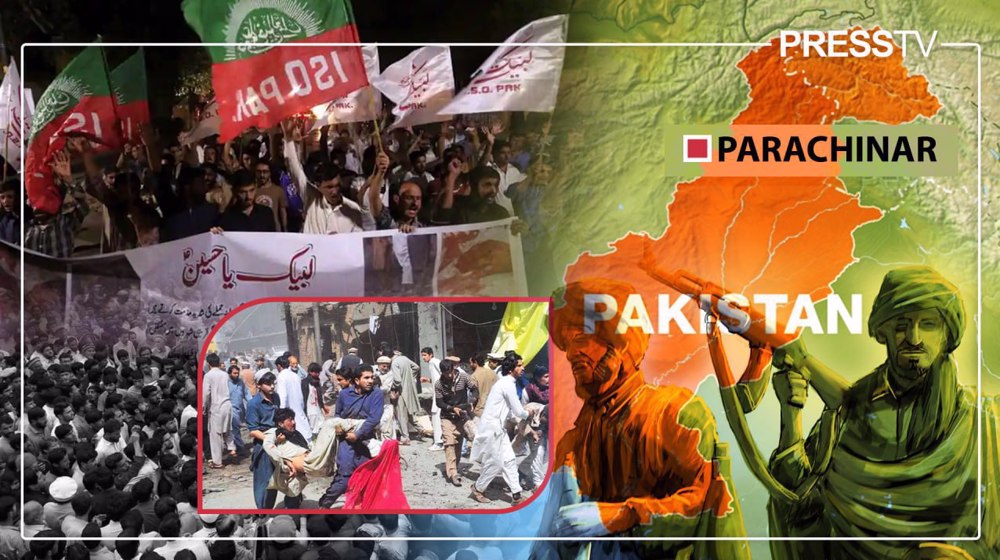
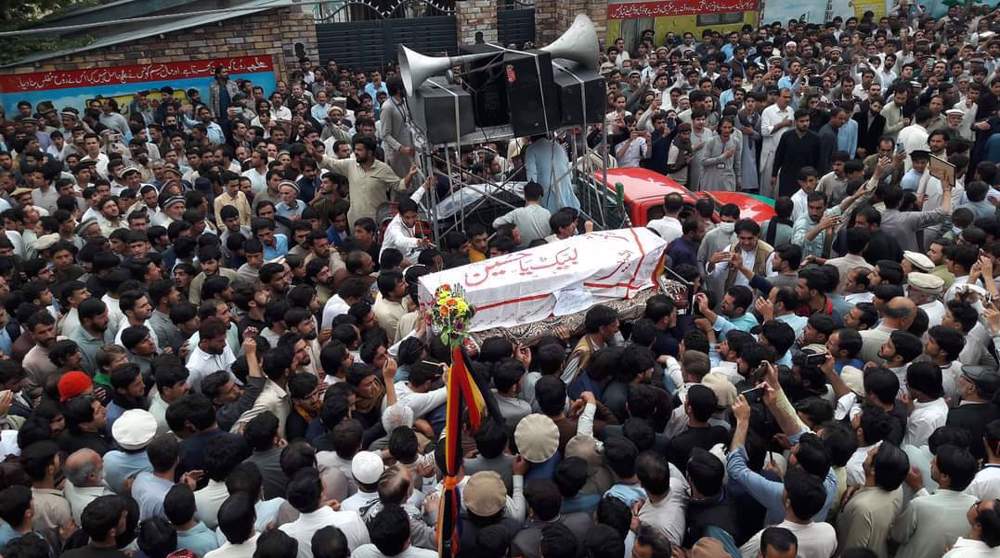
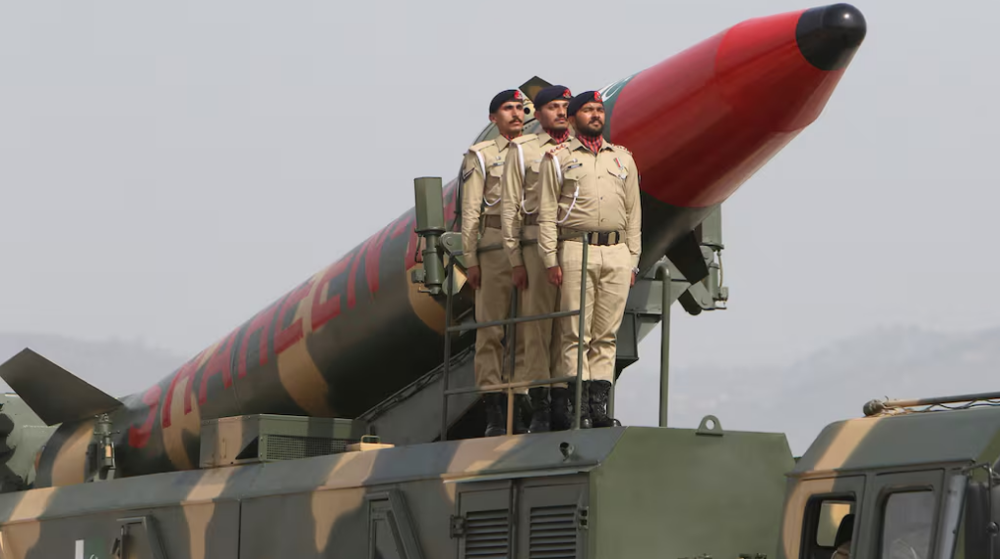

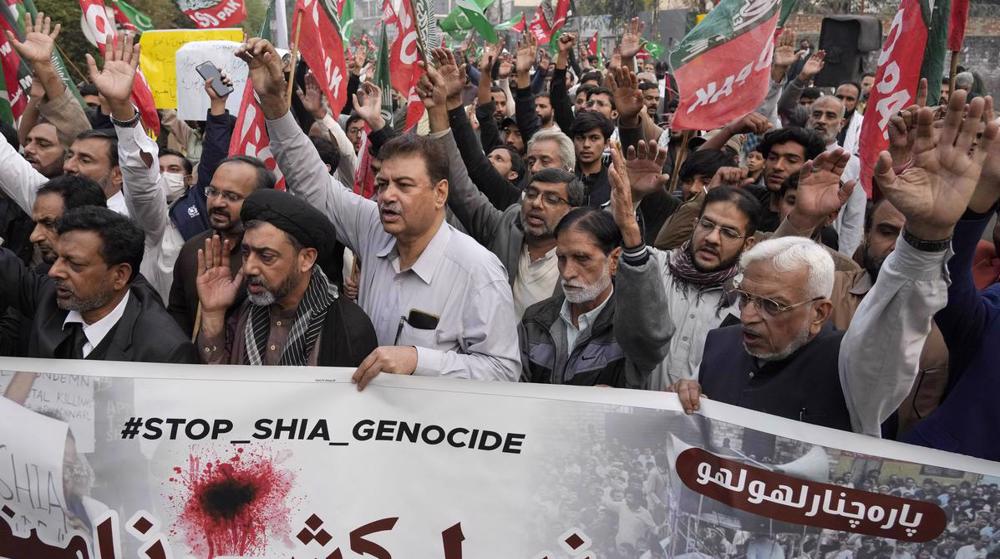



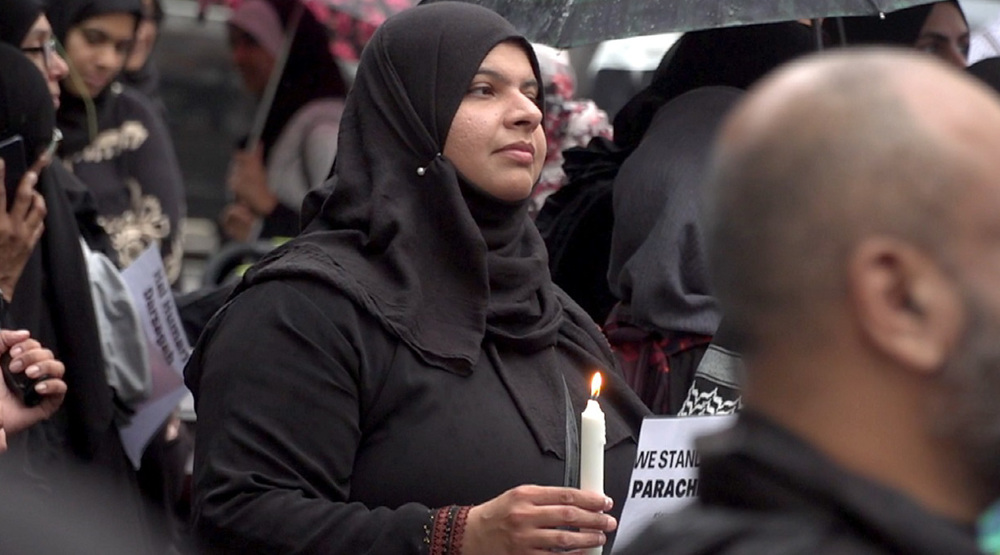
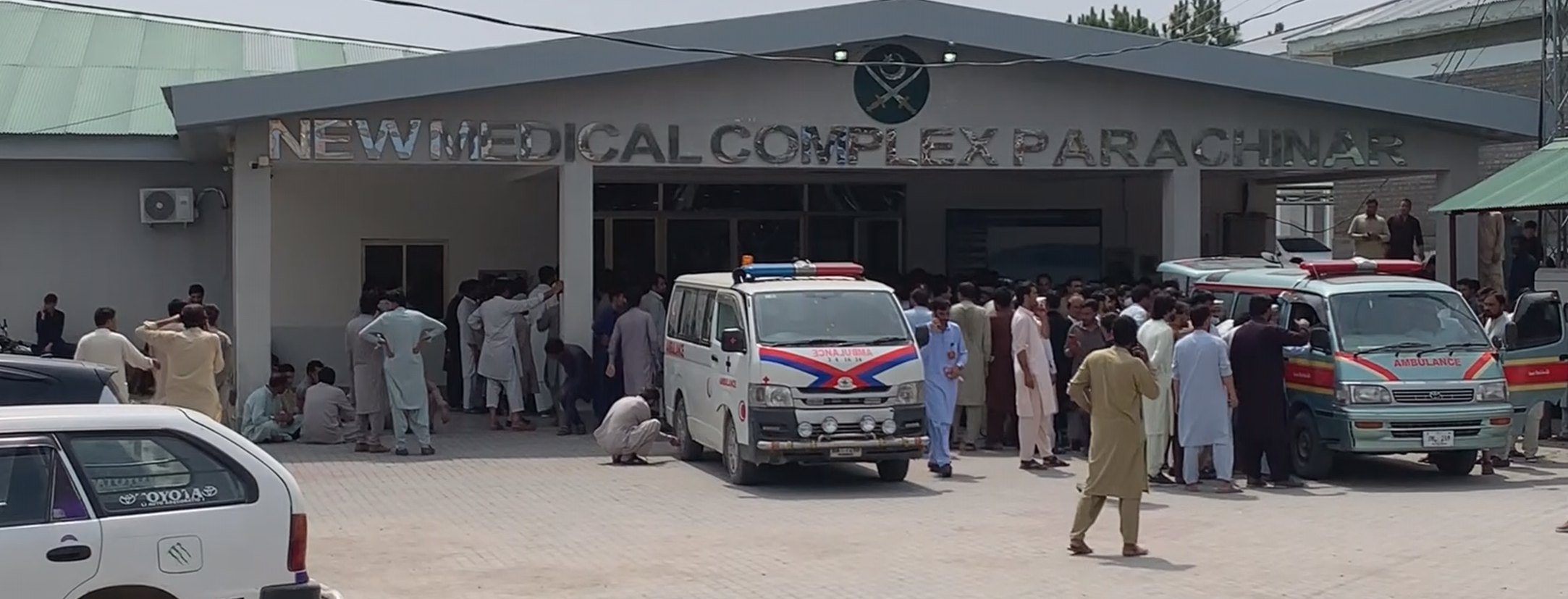
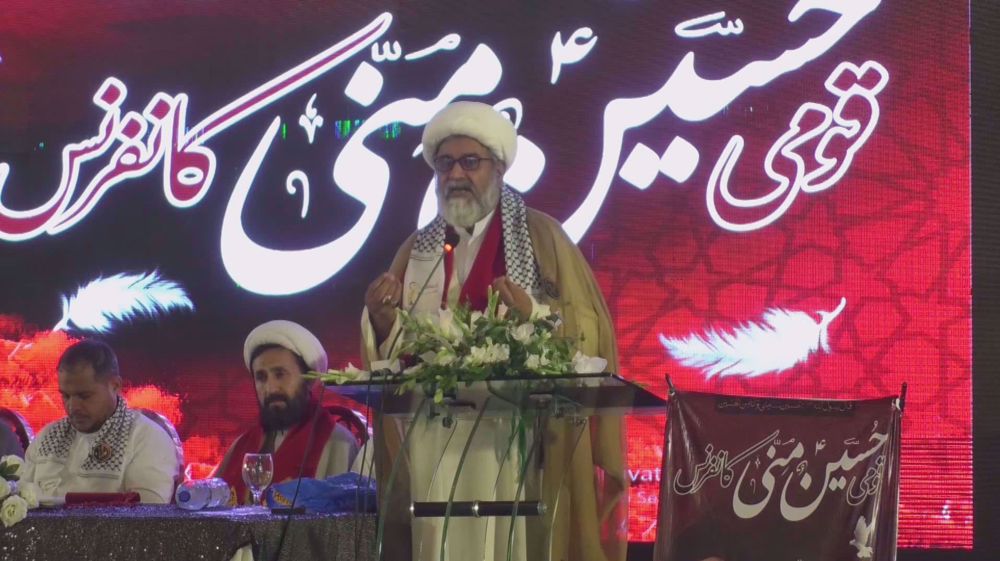


 This makes it easy to access the Press TV website
This makes it easy to access the Press TV website